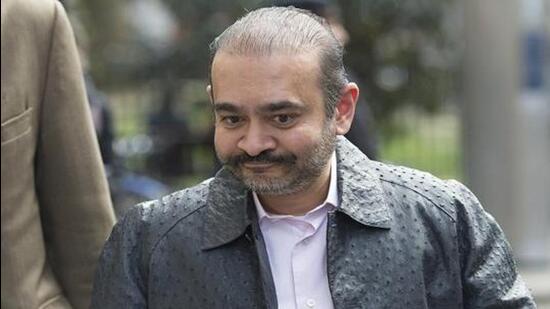Nirav Modi hearing concludes; verdict reserved
The focus in the last three days has shifted from the actual case of fraud and money laundering against Nirav Modi to a test of whether it would be appropriate to have him extradited to India in view of his fragile mental health.
The high court in London has reserved judgment in the Nirav Modi extradition case after the 3-day-long arguments concluded on Wednesday. The rather lengthy exposition on diplomatic assurances and mental health indicate that that the court’s judgement could be precedent-setting on fundamental areas of extradition law that governs both India and UK.

The focus in the last three days has thus shifted from the actual case of fraud and money laundering against Nirav Modi to a test of whether it would be appropriate to have him extradited to India in view of his fragile mental health.
Helen Malcolm, representing Crown Prosecution Service (CPS), remarked that it is “inconceivable” that Modi would have not stood trial in the UK based on his current situation. As both the sides have to convince the court on Modi’s depression and how much he suffers, the arguments on Wednesday too revolved around the same theme. According to Malcolm, there was a possibility that Modi’s situation could improve upon his extradition once he would realise that his “fears of being killed are not true, or that he won’t be in solitary confinement, or that he will have continue to have contact with his family.” Both, prosecution and defence agreed that depression can be treated. Edward Fitzgerald, arguing in Modi’s defence, said there were chances that his condition would deteriorate significantly.
The defence then pointed out other issues that were highlighted during the trial at Westminster Magistrates’ Court – the state of prisons in India, lack of proper healthcare facilities for undertrials and slow judicial process. Fitzgerald pointed out that the Arthur Road jail does not have any suicide protocol and the assurances given do not clarify whether a court’s approval would be required to access private healthcare. “Leading politicians have pre-judged [Modi’s] his case, his effigies have been burnt,” said Fitzgerald, adding that there is no evidence that anyone has got better while being kept in the “notorious” Arthur Road jail in Mumbai.
At one point, Lord Justice Stuart-Smith pointed out to Fitzgerald about the treaty obligations [India and UK have an extradition treaty] and the fact that India was a friendly foreign power. “There have been numerous cases where requested persons have not been extradited,” responded Fitzgerald. He then referred to the case of music director Nadeem Saifee whose extradition was was turned down by British courts.
On Tuesday the court had heard evidence from two forensic psychiatrists who differed in their opinion about the extent of Nirav Modi’s depression. Prof Fazel, for prosecution, reached the conclusion that Modi suffers from mild depression and expressed uncertainty whether it can become severe in an Indian prison, while Prof Forrester appearing for Nirav Modi, believes that he suffers from moderate depression which could turn severe if he were to be extradited. These two differing assessments, among other issues, will inform the final decision of the two-judge bench.





